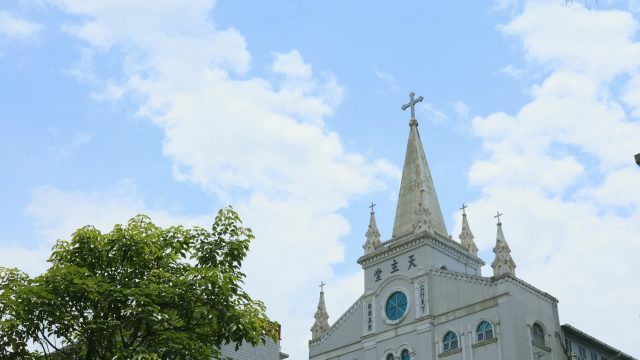
Fuzhou bishop’s state approval has rendered underground Catholics without a leader, but they refuse to join the open church.
An 83-year-old bishop who served the underground church loyal to the Vatican for two decades has now been accepted by China’s communist government at a public ceremony.
Some priests believe that the installation on June 9 of Bishop Peter Lin Jiashan as a state-approved bishop of Fuzhou Archdiocese in Fujian province means the government is taking over the local Catholic Church.
Naturally, some Catholics feel betrayed as state approval comes after they had resisted the ideologies and harassment of the Chinese Communist Party (CCP) for decades.
Bishop Lin is the third underground bishop to be recognized by both the state and the pope after the Vatican and China entered into a pact on the appointment of bishops in September 2018. The agreement is due for renewal in September.
The Chinese government’s decision to accept the elderly bishop and not elect a new one aims to assuage the local Church’s fears that the government seeks to take over the wealth and leadership of the Church completely, an observer noted.
Some Catholics believe that by allowing the public installation of Bishop Lin, authorities are trying to create an impression that state recognition means continuity of the same leadership and system and does not mean state control.
Fuzhou is one of richest and most populous archdioceses in China. It had some 200,000 Catholics and 90 priests in 2014, according to a church directory. Recent media reports said it has some 300,000 Catholics served by 120 priests and over 500 nuns.
However, local Catholics have been divided for a long time between the underground and open churches. That division could deepen with the installation of Bishop Lin, who had been pushing for state recognition for some time, Catholics said.
In a pastoral letter last Dec. 23, Bishop Lin asked all his priests to complete civil registration to provide pastoral care in the diocese.
However, some sources say that at least half his priests, who cannot see themselves as part of the open church, have not completed civil registration.
In pushing his priests for civil registration, Bishop Lin has been trying to follow a Vatican guideline. The Pastoral Guidelines of the Holy See Concerning the Civil Registration of Clergy in China, issued on June 28, 2019, supported civil registration of priests.
The guideline said that following the 2018 agreement, Chinese authorities have undertaken to respect Catholic doctrine. However, Catholic clergy still have to accept the Chinese government principles of independence, autonomy and self-administration of the Church in China.
During his installation, Bishop Lin asked his priests to pledge to “abide by the constitution and laws of the country, obey the government administration and carry out religious activities following the law.”
He also wanted them to accept the principle of an independent and autonomous Church, the leadership of the state-established Chinese Catholic Patriotic Association and the administration of the Archdiocese of Fuzhou.
A group of priests has always resisted state recognition. To help unity in the archdiocese, in 2007 the Vatican asked Bishop Lin to retire and appointed Father Vincent Huang of Mindong as the apostolic administrator of the archdiocese. However, he died in 2016.
Bishop Lin was later reinstated and assisted by Father Lin Yuntuan, who has been apostolic administrator of the diocese for some time.
Father Lin Yuntuan, also a candidate for the role of coadjutor bishop in the archdiocese, believes that with Bishop Lin’s installation, the local underground community has been rendered without a church leader.
He believes the local Church now needs to work towards “unity and reconciliation” in line with Pope Francis’ objective.
The Vatican has been stressing the need for dialogue with the government to help underground Catholics lead normal faith life without being suppressed, leaders like Father Lin say.
They agree that “an abnormal situation” of division among Catholics continues in the Church in China and it worsened after the 2018 Vatican-China agreement.
Following the agreement, the Vatican accepted all eight bishops who had been appointed by the state, but the state has only approved three of some 40 underground bishops appointed by the Vatican.
The priest expressed hope that the government would recognize all 40 Vatican-appointed bishops serving the underground church.
Whatever the future, the division among the clergy and faithful remains a challenge for Bishop Lin to handle.
Source: UCANEWS












